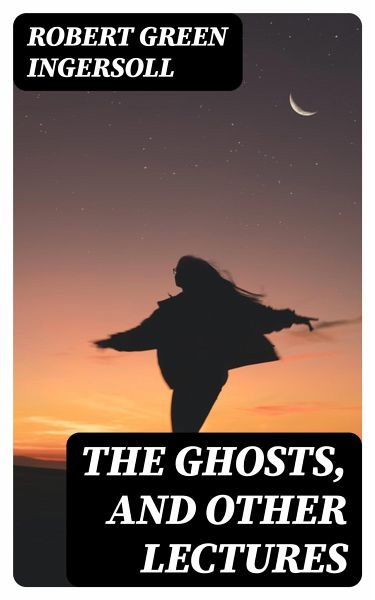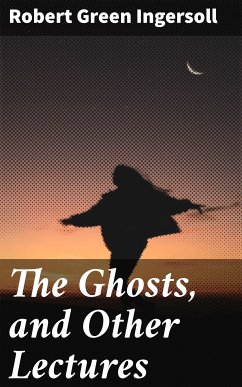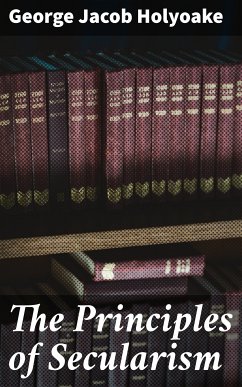
The Ghosts, and Other Lectures (eBook, ePUB)

PAYBACK Punkte
0 °P sammeln!
In "The Ghosts, and Other Lectures," Robert Green Ingersoll presents a series of compelling discourses that challenge prevailing notions of religion, superstition, and the afterlife. This collection of lectures, rich in rhetorical flair and intellectual rigor, reflects Ingersoll's belief in reason and the scientific method, showcasing his ability to articulate complex ideas in accessible language. Set against the backdrop of the 19th-century rationalist movement, Ingersoll's work embodies the spirit of enlightenment questioning that sought to dismantle dogmatic beliefs, featuring his famous cr...
In "The Ghosts, and Other Lectures," Robert Green Ingersoll presents a series of compelling discourses that challenge prevailing notions of religion, superstition, and the afterlife. This collection of lectures, rich in rhetorical flair and intellectual rigor, reflects Ingersoll's belief in reason and the scientific method, showcasing his ability to articulate complex ideas in accessible language. Set against the backdrop of the 19th-century rationalist movement, Ingersoll's work embodies the spirit of enlightenment questioning that sought to dismantle dogmatic beliefs, featuring his famous critique of the concept of spiritual apparitions alongside examinations of morality without reliance on the divine. Robert Green Ingersoll, known as the "Great Agnostic," rose to prominence as one of America's most influential orators and social reformers during a time when skepticism about organized religion was emerging. Born in 1833 in New York, his experiences as a lawyer and a public figure fueled his advocacy for civil liberties, separation of church and state, and the rights of women. Ingersoll's upbringing in a religious household, accompanied by his eventual philosophical turn, catalyzed his desire to confront superstition and promote a more enlightened worldview. Readers seeking to explore the intersection of logic, passion, and advocacy for rational thought will find "The Ghosts, and Other Lectures" to be a provocative and enlightening journey. Ingersoll's eloquence not only entertains but also challenges readers to reconsider their beliefs about the supernatural and the moral implications of secularism, making it a timeless piece for anyone interested in the evolution of modern thought.
Dieser Download kann aus rechtlichen Gründen nur mit Rechnungsadresse in A, B, BG, CY, CZ, D, DK, EW, E, FIN, F, GR, H, IRL, I, LT, L, LR, M, NL, PL, P, R, S, SLO, SK ausgeliefert werden.













